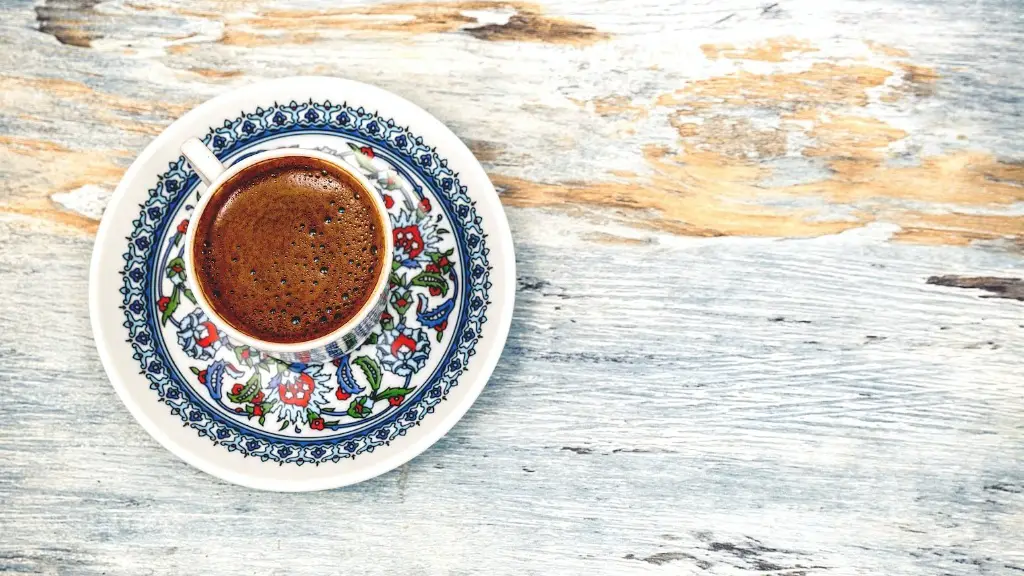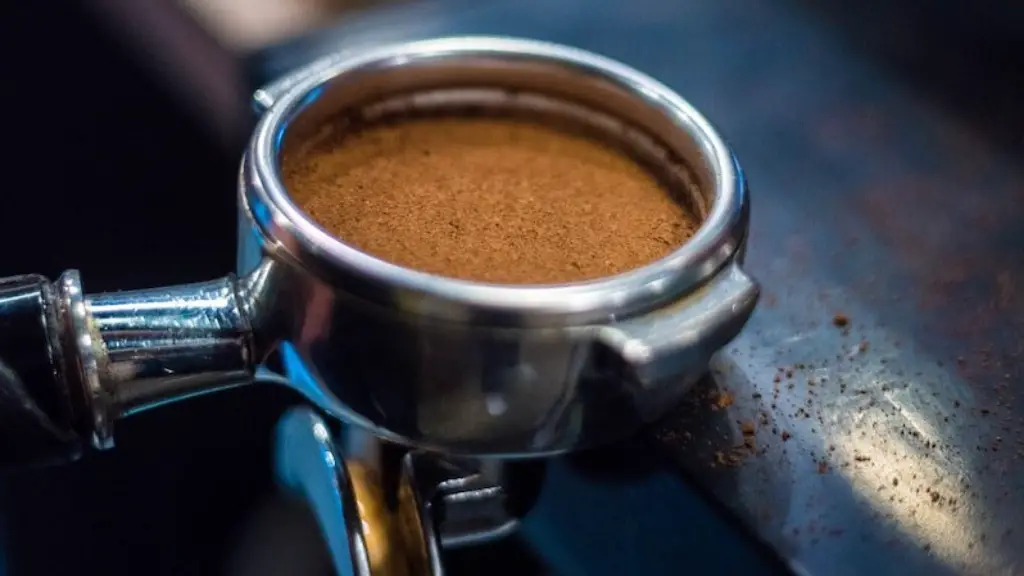Is it Safe to Drink Coffee During Early Pregnancy
During pregnancy, the body undergoes numerous changes which might affect the mother-to-be’s regular lifestyle. One of the most common questions asked by soon-to-be mothers is whether they can drink coffee while they are pregnant. It is well-known that caffeine is a stimulant, but it can also be found in many commercially available drinks, including coffee.
Coffee contains two main components; caffeine and chlorogenic acid. Caffeine is the primary bioactive ingredient found in coffee, and it stimulates the central nervous system. Chlorogenic acid, on the other hand, is an antioxidant found in coffee, and it has a protective role on human health.
Researchers have determined the safe limit for caffeine intake during the different stages of pregnancy. The general consensus is that women should not consume more than 200 milligrams of caffeine daily when they are pregnant. That amount is roughly equivalent to two cups of coffee. Too much caffeine might lead to an increased risk of miscarriage or stillbirth.
Numerous medical studies have suggested that drinking no more than two cups of coffee per day during the first trimester of pregnancy is unlikely to cause any harm to the fetus. Nevertheless, it is important to keep in mind that every woman’s body is unique and reacts differently to different substances. Therefore, it is advisable to seek medical advice before making any decision with regards to caffeine intake.
Furthermore, it is recommended for pregnant women to switch to decaffeinated coffee or tea, as well as drinking plenty of water. Decaffeinated coffee does not contain as much caffeine as regular coffee, and can be a better option for pregnant women who want to limit their caffeine intake. In addition, water can help to regulate the body temperature, prevent dehydration, and ensure the proper functioning of various organs.
In conclusion, drinking no more than two cups of coffee per day during the first trimester of pregnancy is considered to be safe. However, pregnant women should always consult a doctor before limiting or increasing their regular caffeine intake. On top of that, switching to decaffeinated coffee or tea might be a better option, and consuming enough water is essential for the health of both the mother and the baby.
Is Decaffeinated Coffee a Better Option?
Decaffeinated coffee is a great option for pregnant women who want to limit their caffeine intake, as it contains much lower levels of caffeine compared to regular coffee. This can help to reduce the amount of caffeine in their diet without sacrificing the taste of the favorite beverage.
Nevertheless, decaffeinated coffee does not mean caffeine-free. According to the US Food and Drug Administration (FDA), decaffeinated coffee must contain a minimum of 97% caffeine-free. Therefore, pregnant women should pay attention to the label of the product and make sure that it is indeed decaffeinated.
There are two main methods used to produce decaffeinated coffee: Swiss Water Method and CO2 method. The Swiss Water Method uses water and charcoal filters to remove most of the caffeine from the beans, but it can also affect the flavor of the coffee. The CO2 method, on the other hand, uses carbon dioxide to strip the caffeine molecules from the beans, thus preserving the flavor of the coffee.
Overall, decaffeinated coffee can be a great option for pregnant women who want to reduce their caffeine intake without sacrificing their favorite beverage. Some brands might be more flavorful than others, depending on the decaffeination method used.
What Other Health Benefits Does Coffee Have?
Coffee is not only a tasty beverage, but it can also offer many health benefits due to its unique combination of antioxidants and bioactive compounds. Studies have demonstrated that regular consumption of coffee can reduce the risk of various health conditions, including diabetes, heart disease and dementia.
Coffee is also rich in essential nutrients, such as magnesium and potassium, which can help to support the body’s physical functioning. In addition, coffee consumption has been associated with decreased risk of depression and also improved cognitive function.
All in all, Coffee is a beverage with numerous potential health benefits. Studies have suggested that drinking no more than two cups of coffee per day can offer numerous health benefits. It is important to keep in mind that pregnancy is a delicate period and that pregnant women should always seek advice from their physician before consuming coffee or any other beverage.
What Kind of Coffee Should Pregnant Women Drink?
Decaffeinated coffee is the best option for pregnant women, as it contains much lower levels of caffeine. However, it is important to pay attention to the label and make sure that it is truly decaffeinated.
On the other hand, pregnant women can opt for freshly brewed coffee or even cold brew, as these contain much lower levels of caffeine. Another option is instant coffee, as it is caffeine-free and convenient to prepare, but it should be noted that it contains fewer health benefits compared to freshly brewed coffee.
Pregnant women should also be careful when it comes to flavored coffees, as these might contain added sugar and other artificial ingredients. It is best to check the label to make sure that the coffee does not contain any unwanted ingredients.
Overall, pregnant women should opt for decaffeinated coffee, freshly brewed coffee, instant coffee or cold brew, and pay attention to the label to avoid any unwanted ingredients.
Which Types of Coffee Are Unsafe During Pregnancy?
Some types of coffee should be avoided during pregnancy, as they might cause health risks for the mother or the fetus. These include energy drinks, matcha, and mocha. Energy drinks contain large amounts of caffeine and various artificial substances, which should be avoided during pregnancy.
Matcha is a type of green tea that is widely consumed for its health benefits. However, pregnant women should not consume large amounts of matcha, as it contains large amounts of caffeine and it can increase the risk of miscarriage or stillbirth.
Mocha is another coffee beverage that should be avoided during pregnancy, as it combines coffee and chocolate and contains large amounts of both caffeine and sugar. Too much caffeine and sugar can be dangerous for pregnant women, as they can affect the health of the mother and the baby.
In conclusion, some types of coffee, such as energy drinks, matcha and mocha, should be avoided during pregnancy due to their high levels of caffeine and sugar, as well as potential dangerous artificial ingredients.
What Common Practices Should Pregnant Women Follow Besides Avoiding Coffee?
Pregnant women should follow several common practices to ensure the health of the mother and the baby, in addition to avoiding or limiting the consumption of coffee. Healthy diet, regular physical activity, and regular prenatal appointments should be on the list of priorities.
A healthy diet for pregnant women should include essential nutrients such as proteins, carbohydrates, and fats. It should also include fruits, vegetables, whole grains, dairy products, and nuts. In addition, pregnant women should limit their consumption of processed food, added sugar, and saturated fats.
Regular physical activity is also important for pregnant women, as it can help to reduce stress, prevent excessive weight gain, and keep the body in good shape. Pregnant women can engage in activities such as walking, swimming, or yoga on a regular basis.
Last but not least, pregnant women should attend their regular prenatal appointments and follow their doctor’s instructions. Regular visits to the doctor can help to monitor the health of the mother and the baby, and also adjust any treatment if necessary.
In conclusion, pregnant women should follow a healthy diet, engage in regular physical activity, and attend regular prenatal appointments. Following these common practices can ensure the health of the mother and the baby.





